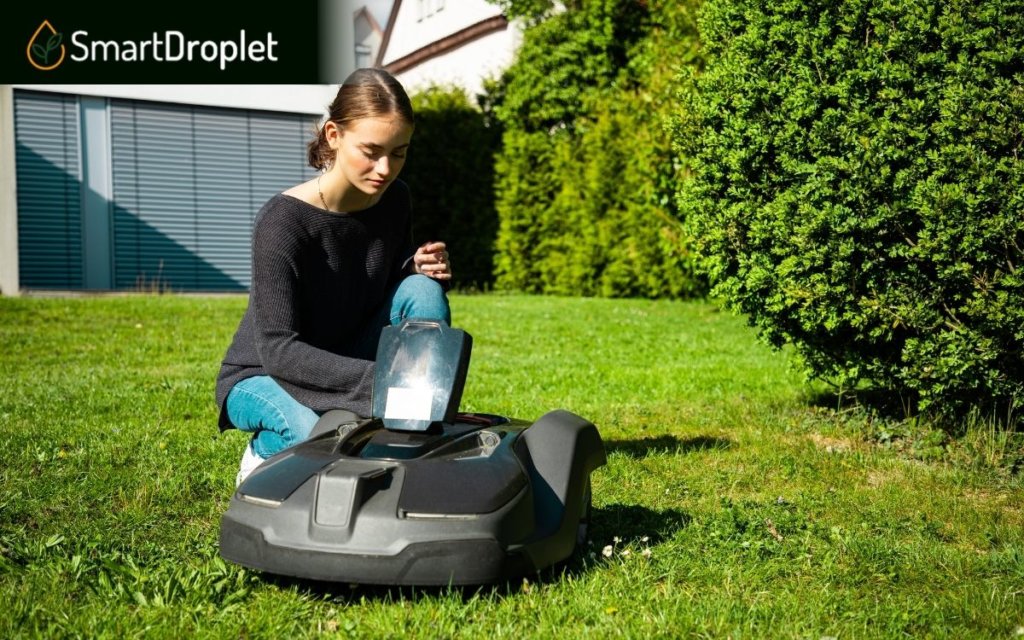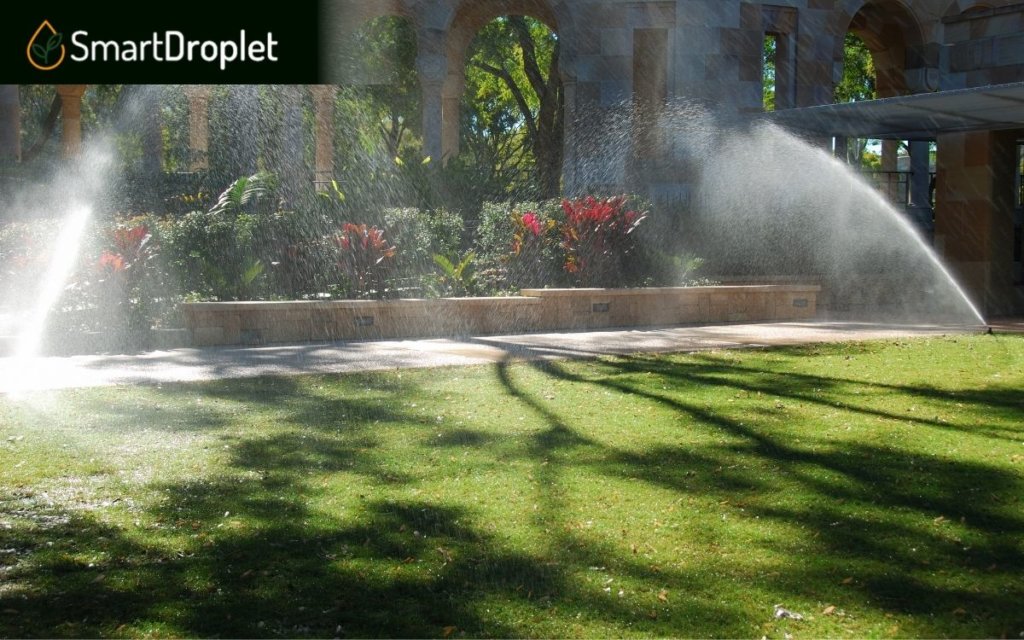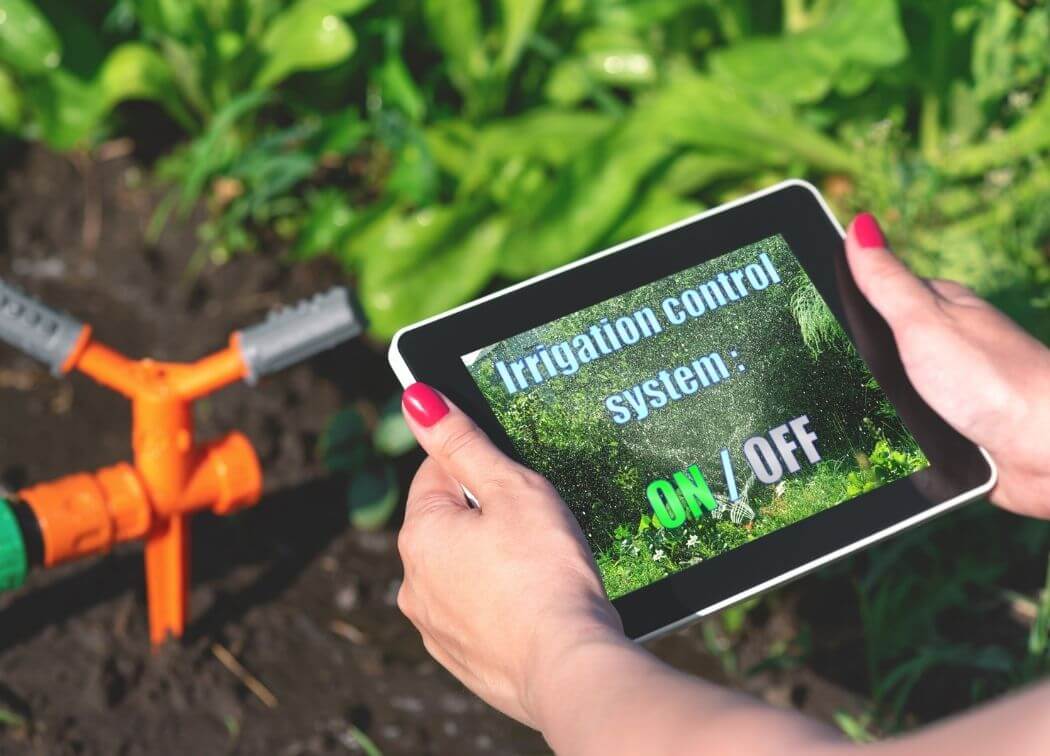Do you own a huge property? If you do, you know how much it takes to keep one in shipshape!
Although traditional irrigation methods are still available, they have been shown to produce wasted water. Now that’s not good for the environment!
Thankfully, smart irrigation technology is now an option for lawn owners that aim to practice WATER CONSERVATION.
Smart irrigation technology contain sprinkles with nozzles that constantly adjusts the watering to optimal levels. These sprinkler controllers are either weather-based or soil moisture-based
Before you sign up to install this new technology for your lawn, check out this quick read!
What Is Smart Irrigation Technology?
Smart irrigation systems allow you to customize watering schedules. They will run automatically too.
The effectiveness and efficiency of these systems are top-notch!
Unlike traditional irrigation controllers, this new technology can meet your specific plant type and landscape needs.
How? By monitoring weather, soil conditions, evaporation, and plant water use. The controllers will then adjust the watering schedule to the actual conditions of your garden.
Let’s say you have a weather-based controller, and rainfall occurs, decreasing outdoor temperature. Sensors can detect and measure variables like soil type, solar radiation, and moisture.
The irrigation system will then adjust the schedules or the sprinkler’s application rate to water your landscape just right.
Smart Watering Options
These are the devices you can set up in your yard for easy watering and lawn maintenance:

Lawn Watering Robot
A lawn watering robot can be attached to your standard garden hose. Its wire sensors then detect parts of your garden that may be dryer than others.
Once it is time to water, the lawn watering robot will allocate more water to the dryer parts and less to the sufficiently damp areas.
This technology will save you on water use!
Robot Sprinkler Systems
A smart controller functions as a thermostat for your garden.
It can adjust real-time to weather and soil conditions for you to maintain a healthy landscape while reducing water waste.
There are 2 basic types of robot sprinkler systems:
Weather-based Smart Irrigation Controllers
Weather-based controllers, also known as evapotranspiration (ET) controllers, use the weather data in your area to adjust to watering schedules.
Evapotranspiration considers the evaporation from the surface of the soil and the transpiration by the plants.
FAST FACT: The ET weather data considers temperature, wind, rainfall accumulation, solar radiation, and humidity.
These factors calculate your landscape’s water needs. The system then receives this information, so you must use an accurate amount of water for irrigation.
Soil Moisture Sensors With Smart Irrigation Controllers
Soil moisture sensors automate scheduled irrigation based on soil moisture content.
The difference between soil moisture sensors over weather-based controllers is that the former sensors are often buried in the root zone of turf, trees, or shrubs to determine moisture levels.
The soil moisture reading is then transmitted to the controller to determine how much water is needed before scheduled irrigation. It will automatically bypass the irrigation cycle if it exceeds the specific soil moisture threshold.
How Do Smart Irrigation Controllers Work?
You can install smart watering technology in existing irrigation systems. They can monitor local weather conditions and actual soil moisture levels.
In turn, these smart irrigation systems can cut your water usage by up to 20% to 40%!
Plus, the smart irrigation device can even be connected to your home or office wifi, allowing you to control them with a remote. Talk about convenience!

What Makes the Best Smart Sprinkler Controller?
Before you sign up for an installation for the best smart sprinkler controllers, consider these features:
- Cloud Connection – This allows you to get updated information on weather forecasts, determining how much water to use for the irrigation system. Wifi also allows you to monitor your sprinkler through a remote device.
- Zones or Stations – The model you get should have about 8, 12, or 16 zones for your irrigation system to operate under optimal conditions.
- Rain Sensor – This is a great feature to conserve water usage. Watering pauses when precipitation is detected on your landscape.
- Programs – You should at least have 2 programs. Most sprinkler timers have access to one up to four programs. Some timers also have seasonal scheduling options on top of daily, weekly, or monthly schedules.
What Are the Disadvantages of Smart Irrigation Systems?
This new technology is undoubtedly efficient and can get you a ton of water savings. But installing a smart irrigation controller will still cost a lot of money.
These irrigation systems are expensive, especially if you have a big landscape.
You might need to install sensors with a wider range and have additional pipework and plumbing done to incorporate them into the sprinkler system.
To have a complete smart irrigation system could take days or even weeks.
Is a Smart Lawn Watering Robot Worth It?
Despite the money smart irrigation controllers will cost upfront, water savings up to 40% are worth every penny.
With these smart controllers, an efficient irrigation system also saves you time and effort. You don’t need to keep checking on your yard!
Final Thoughts
In summary, smart irrigation controllers measure weather conditions or soil moisture.
No matter which type of controller you prefer, what is important is you consider a conservation system the earth will badly need!
What are you waiting for? Sign up for a smart irrigation system for your property today!



